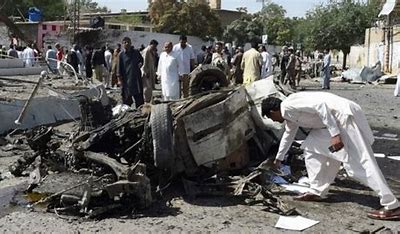November 2024 was one of the deadliest months in Pakistan’s recent history, with 245 fatalities and 257 injuries reported from terrorist attacks and clashes, according to a report by the Pakistan Institute for Conflict and Security Studies (PICSS). This included 68 security personnel, 127 terrorists, and 50 civilians.
The month marked the highest casualty rate for security forces this year, surpassing October’s 62 deaths. Overall, it ranked as the second deadliest month of 2024, following August, which recorded 254 fatalities.
Security Personnel Face Heavy Losses
November emerged as the deadliest month for security personnel in Pakistan in 2024, with 68 killed and 104 injured. These figures reflect a growing threat to national security, exacerbated by escalating militant activities.
Militant attacks accounted for 131 fatalities, including 54 security personnel, 50 civilians, and 27 militants. The month also recorded 71 terrorist incidents, a rise from 68 attacks in October.
Regional Impact: Khyber Pakhtunkhwa and Balochistan
The Khyber Pakhtunkhwa province was the hardest hit, with 50 terrorist attacks leading to 71 deaths and 85 injuries. The Kurram district experienced one of the worst tribal clashes in recent years, resulting in over 120 deaths.
In Balochistan, 20 attacks caused 60 fatalities, including 26 security personnel, 25 civilians, and nine terrorists. This region remains a hotspot for insurgent activity and violent clashes.
Terrorism Statistics Show a Deteriorating Security Situation
The report revealed that terrorist-related fatalities in 2024 have exceeded 1,000, with 1,082 deaths reported in the first 11 months of the year. This marks a significant increase from 2023, which saw 645 attacks compared to 856 so far in 2024.
November’s 127 terrorist fatalities were the highest monthly toll since February 2017, highlighting a worrying trend of escalating violence.
Conclusion
The sharp rise in terrorist incidents and security force casualties underscores a growing crisis in Pakistan’s internal security. With over 1,000 fatalities reported in 2024 alone, the need for a robust counter-terrorism strategy has never been more urgent. The government faces mounting pressure to restore stability and address the root causes of these recurring attacks.























